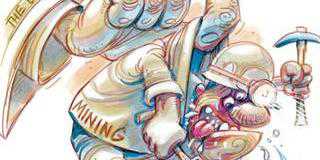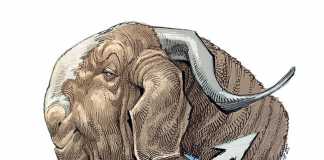Trout, bass and carp fishermen woke up on 20 July as potential criminals. If they ever again caught any of these fish, they would be liable for a fine of up to R10 million or a period of imprisonment of up to 10 years. Moreover, people whose livelihoods depend on these trout, bass and carp fishermen woke up to the fact that what they did for a living was either under threat or, in some cases, a criminal offence.
This situation came about because the previous day the minister of water and environmental affairs listed trout, carp and bass as invasive, alien species in terms of the National Environmental Management: Biodiversity Act (NEM:BA). There was no prior consultation with affected parties. Nor was consideration given to the fact that the economies of some areas in South Africa depend largely on the business of recreational fishing and that there have been substantial investments made and profits earned in these businesses.
Divergent approaches
NEM:BA came into being when South Africa, along with most countries in the world, signed the United Nations Convention on Biodiversity. This convention obliges member countries to promote biodiversity on terms aligned with the aims and objectives of the convention to the extent that the country convened has the resources to do so. NEM:BA is unique in that it is the only legislation in the world where the convention has been so comprehensively adopted as part of a country’s domestic law. Thus NEM:BA follows the scheme set out in the convention by legislating protection of indigenous species through the control and eradication of listed invasive and alien species.
But there is an important difference between the definitions given by these two bodies. Both define alien species as any species introduced into an environment by man. However, the convention makes invasive any alien species that threatens another species. Thus, the convention sees man as a threat. The NEM:BA, on the other hand, must stay true to the Constitution and balance that threat against the benefits that an alien species brings to man.
A species must pass three tests before it is legally invasive under NEM:BA. It must spread outside its natural range, it must threaten other species, ecosystems or habitats, and it must threaten environmental or human health. One would assume that no species would be listed as invasive without an assessment being done into its economic and sociological impacts. However, no such studies have been done by the department.
Listing Invasive Species
NEM:BA was recently amended to allow a species to be listed as invasive in a number of different ways. It could for instance be declared invasive across the whole country or in particular areas.However, in an email to the Federation of South African Fly Fishers (Fosaf), a senior departmental officer explained that although many species are only invasive in parts of the country, the department has decided to list them as invasive throughout the country.
This has been done because the department fears that species translocation will be easier if the species are not listed nationally. It is unclear if trout, bass and carp fall into this category. What is clear, however, is that declaring a species invasive only in areas where this is shown to be so is not possible, once a species has been listed nationally.
The fact that trout, bass and carp all provide significant social and economic benefits should make it impossible to list them nationally as invasive species. However, instead of applying the three-part test, the department has followed the convention stating that an alien species is invasive once it is shown to pose a threat to any other species anywhere in South Africa. This approach is incompatible with NEM:BA and the Constitution, both of which require economic and social impacts to be prioritised in any assessment of invasiveness. It also creates serious practical difficulties in implementing NEM:BA.
Eradication
It is impossible to achieve the aims and objectives outlined in the convention, not just in South Africa but in any country. No country has the resources to turn back the clock and remove alien or invasive species once they are established. Senior officials of the department have said as much. The department proposes a pragmatic approach to deal with the problem of invasiveness. So, although trout, bass and carp are listed as invasive, the department recognises that not much can be done about it.
The more so, since there are economic and sociological benefits that come with continued exploitation of these species. Thus the department will tolerate some of the damage they claim that trout, bass and carp cause because these fish are also beneficial. This will be done on the basis that the user pays for damage. With this in mind, the department intends to amend the regulations again. This time it will allow for a broader categorisation of invasive species – perhaps in line with the scheme that applies to wattle, blue gum and pine trees (which are not listed as invasive) in terms of the Conservation of Agricultural Resources Act (Cara).
Alien Control
The trouble with this approach is that it is incompatible with NEM:BA. It is not a pragmatic law but one that holds true to the convention’s ideals. This contrasts with the way in which NEM:BA deals with invasive species.The convention states that invasive species must be controlled. Control is defined to mean combat or eradicate an alien or invasive species or, where such eradication is not possible, to prevent, as far as may be practicable, the recurrence, re-establishment, re-growth, multiplication, propagation, regeneration or spreading of an alien or invasive species.
The Act is very strict about how one goes about this. Everybody owes a duty of care in respect of invasive species subject to their control. National and provincial government must prepare plans that identify the problem and propose interventions to achieve that control. Failure to do so can lead to legal proceedings being instituted against anyone who fails to do so. The Kloof Conservancy has already done this, complaining that the department took too long to implement the law, exposing the citizens of Durban to the ravages of bugweed and lantana.
The point is that the obligation to control does not give the department the kind of flexibility it says it has in order to deal with economically and sociologically useful species such as trout, bass or carp. It cannot regulate levels of invasiveness. The nature of the control that is required to apply under NEM:BA is inflexible.
Restricted Activities
Section 71, read with section 101 of NEM:BA, makes it a criminal offence to carry out a restricted activity in respect of a listed invasive species without a permit. Restricted activities are broadly defined to include growing, breeding, transporting, selling or donating an invasive species. Thus, operating a hatchery, offering fresh or frozen trout for sale and fishing (or at least catching trout, bass or carp and thereby exercising control over it) are also crimes.
Some argue that this is not the case if you are fishing someone else’s waters and release what you catch, but this is debatable. The trouble is that you cannot get a permit at present because the regulations under which permits are granted are not in force and won’t be until at least April next year. The department claims that this means the list of invasive species is not yet operational, but this is not technically correct. The regulations are promulgated under a separate section to that which applies to the lists.
The two sections are unrelated. The minister erred in publishing the lists when the regulations were not yet in force. This probably means they can be set aside as invalid but until someone goes to the expense of doing so, they remain legally enforceable.
Exemptions
NEM:BA has recently been amended to allow restricted activities to be exempted, thus rendering legal activities that would otherwise be illegal. However, this can only be done once the regulations are in place and after a risk assessment has been carried out. This cannot start until the regulations are in force. It is not clear if this is how the department proposes to manage trout, bass and carp under NEM:BA. I think it will be difficult, given the overriding obligation to eradicate or, if this is not possible, inhibit an invasive species.
Unworkable law
The department has failed to explain how the legal requirement of control can be aligned with the continued exploitation of an invasive species as an economically and sociologically beneficial resource. The department undertook to give Fosaf a legal explanation but later withdrew this offer. It is an understatement to describe this as a bit of a mess. NEM:BA became law just over nine years ago, but has failed to get off the ground. I suggest this is because the law itself is unworkable. Parliament should never have slavishly followed the convention; no one else has and for good reason.
This latest attempt to make the law operational is also doomed to failure – an unfortunate failure given that it has criminalised activities enjoyed by South Africans for more than a hundred years. It is also disturbing in that it demonstrates the department’s willingness to ignore the rule of law in what, at the end of the day, is an attack on the constitutional rights of citizens. We need to know that the government will put our needs as human beings uppermost.
The views expressed in our weekly opinion piece do not necessarily reflect those of Farmer’s Weekly.













